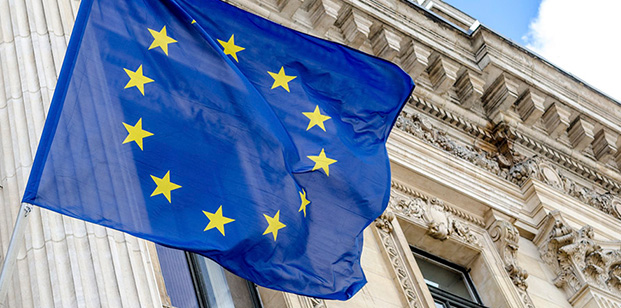December 2018
Despite concerns that the eurozone’s economic expansion is showing signs of faltering, the European Central Bank confirmed that its programme of quantitative easing measures was ending at the end of 2018 as planned. Elsewhere, the European Commission began to implement contingency measures for a no-deal Brexit.
- France postponed unpopular increases in fuel tax
- Sweden increased its key interest rate to -0.25%
- Italy finally agreed to revise its budget
To view the series of market updates through December, click here
Despite concerns that the eurozone’s economic expansion is showing signs of faltering, the European Central Bank (ECB) confirmed that its programme of quantitative easing measures was ending at the end of 2018 as planned. ECB President Mario Draghi warned that “the balance of risks is moving to the downside”, and central bank officials have trimmed their economic growth forecast for 2019 to 1.7%, citing uncertainties including volatility in financial markets, geopolitics, rising protectionism, and weaknesses in emerging markets. Looking ahead, policymakers intend to maintain their current monetary policy stance for “as long as necessary” in order to achieve their inflation target of around 2% whilst maintaining favourable liquidity conditions.
”An exercise in limiting damage”
Sweden’s Riksbank raised its key interest rate for the first time since 2011 in December. Policymakers implemented an increase of 0.25 percentage points during the month, although rates remained in negative territory at -0.25%. Looking ahead, the central bank expects to implement a further two rate increases during the second half of 2019.
In a bid to protect the EU from disruption in areas such as finance, transport, and customs, the European Commission (EC) announced that it had initiated the implementation of contingency measures for a no-deal Brexit. Nevertheless, the EC stressed that its measures could not “mitigate the overall impact of a no-deal scenario”. EC Vice-President Valdis Dombrovskis described the measures as “an exercise in limiting damage”.
Fuel-tax rises were postponed by the French government in December following violent public demonstrations. However, the decision is expected to result in budget cuts and credit ratings agency Fitch warned that France faces ongoing challenges to reducing public debt. Looking ahead, planned future reforms could become harder to implement if President Macron is forced to embrace a more consensual approach, and scope for an expansionary fiscal policy is likely to be limited. The CAC 40 Index fell by 5.5% during December and by 11% over 2018.
Elsewhere, Annagret Kramp-Karrenbauer took over from Angela Merkel as leader of Germany’s Christian Democrat Union, becoming a contender for the position of Chancellor when Mrs Merkel’s term ends in 2021. The Dax Index fell by 6.2% during December and by 18.3% in 2018. Italy bowed to pressure from Brussels and agreed to revise its 2019 budget deficit target in order to avoid sanctions. The FTSE MIB Index fell by 4.5% in December and by 16.1% in 2018.
A version of this and other market briefings are available to use in our newsletter builder feature. Click here









